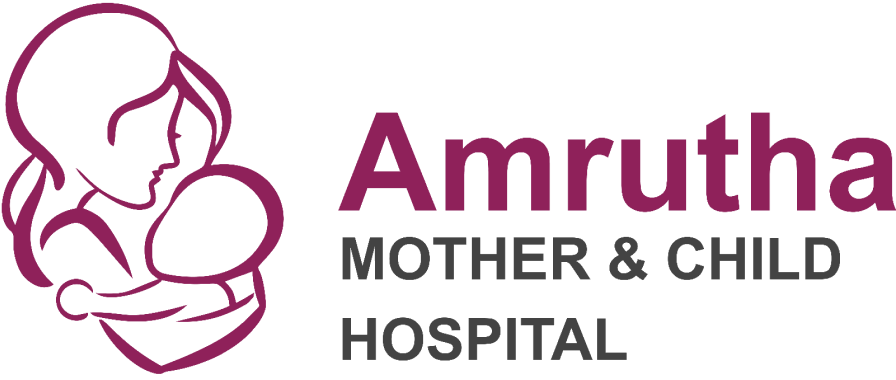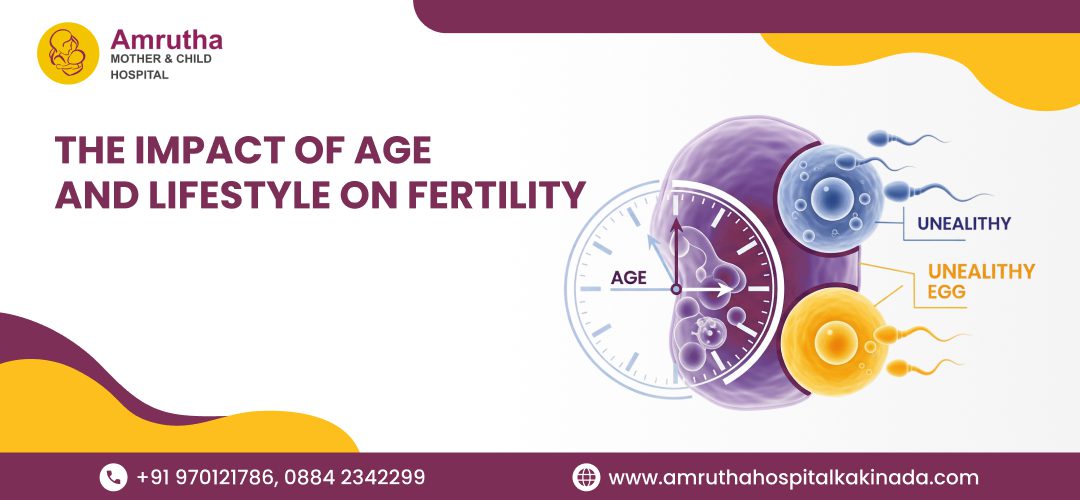Fertility is influenced by a variety of factors, but two of the most significant are age and lifestyle choices. As more individuals delay parenthood due to education, career growth, or personal goals, it’s important to understand how these factors can affect the ability to conceive.
At Amrutha Mother and Child Hospital, we believe that informed decisions can lead to better outcomes. Let’s explore how age and daily habits play a role in fertility health for both men and women.
Age and Fertility: What You Need to Know
For women, the optimal reproductive years are typically between 17 and 35. After the age of 35, fertility begins to decline steadily, and by age 40, the chances of natural conception drop to 5–10%.
Why Does Fertility Decline With Age?
- Egg quality and quantity diminish as a woman ages.
- Increased risk of miscarriage and chromosomal abnormalities in later pregnancies.
- There are no treatments to increase egg quantity, and egg quality can only be improved marginally.
That’s why it’s essential for couples to understand the biological clock and plan accordingly.
Male Age and Fertility
While the decline in male fertility is more gradual, it becomes more noticeable after age 50, affecting sperm count, motility, and quality, which can influence conception outcomes.
Lifestyle Choices That Affect Fertility
In today’s fast-paced world, lifestyle habits have a significant impact on reproductive health. Poor choices can lead to hormonal imbalances, reduced sperm and egg quality, and overall reproductive challenges.
1. Obesity
- In women: Obesity can lead to PCOS, hormonal imbalance, miscarriages, and complications during pregnancy.
- In men: It is linked to low sperm count and erectile dysfunction.
- Common causes include a sedentary lifestyle, unhealthy eating habits, and lack of physical activity.
2. Poor Diet
- Skipping meals, high consumption of junk food, and nutrient-deficient diets can affect egg and sperm health.
- Poor nutrition also contributes to obesity, doubling the negative effects on fertility.
3. Stress and Work Pressure
- Long working hours, night shifts, and tight deadlines often lead to emotional and physical exhaustion.
- Chronic stress affects hormone levels, reduces libido, and weakens personal relationships — all contributing to reduced fertility.
4. Pollution Exposure
- Daily exposure to environmental pollutants, especially in urban areas, can decrease sperm quality and disrupt hormonal balance.
5. Smoking and Alcohol Use
- Both smoking and excessive alcohol consumption are proven to reduce fertility in both men and women.
- These substances affect sperm quality, egg health, and increase the risk of infertility-related complications.
Planning for a Healthier Fertility Journey
At Amrutha Mother and Child Hospital, we encourage couples to:
- Be proactive about fertility assessments
- Maintain a healthy weight and balanced diet
- Manage stress through work-life balance
- Avoid smoking, alcohol, and limit exposure to harmful pollutants
- Consider timely family planning based on age and medical history
Our team of fertility specialists, gynecologists, and counselors are here to guide you with personalized care and evidence-based treatments, helping you make informed decisions about your reproductive health.
Final Thought:
Age and lifestyle don’t just influence your overall health—they directly impact your fertility. By taking conscious steps today, you can safeguard your dreams of parenthood for tomorrow. Let Amrutha Mother and Child Hospital be your trusted partner in this journey. Contact Us


